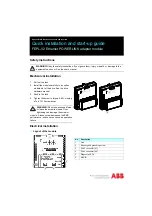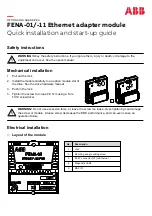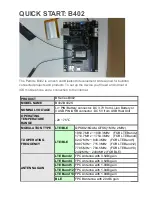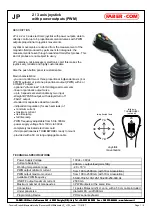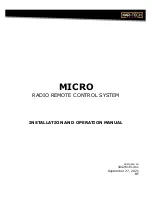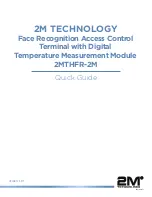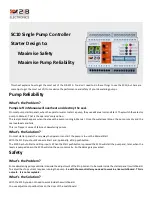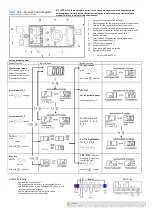
HX7+ ASD Installation and Operation Manual
17
Motor Characteristics
Listed below are some variable speed AC motor control concepts with which the user of the
HX7+ Adjustable Speed Drive
should become familiar.
Motor Autotuning
Motor production methods may cause minor differences in the motor operation. The negative effects of
these differences may be minimized by using the
Autotune
feature of the
HX7+ ASD
.
Autotuning
is a
function of the HX7+ ASD that measures several parameters of the connected motor and places these
readings in a stored table. The software uses the information in the table to help optimize the response of
the HX7+ ASD to application-specific load and operational requirements. The
Autotuning
function may
be enabled for automatic tuning, configured manually at
, or disabled.
The measured parameters include the rotor resistance, the stator resistance, the required excitation
inductance, rotational inertia values, and leakage inductance values.
The HX7+ ASD is also equipped with a factory-loaded table of motor parameters that fit several different
types of motors. To use this function, disable
Autotune
and select a motor type at
.
Pulse Width Modulation Operation
The
HX7+ ASD
uses a sinusoidal
Pulse Width Modulation
(PWM) control system. The output current
waveform generated by the HX7+ ASD approaches that of a perfect sine wave; however, the output
waveform is slightly distorted. For this reason, the motor may produce more heat, noise, and vibration
when operated by an HX7+ ASD, rather than directly from commercial power.
Low Speed Operation
Operating a general-purpose motor at lower speeds may cause a decrease in the cooling ability of the
motor. Reducing the torque requirement of the motor at lower speeds will decrease the generated heat at
lower speeds.
Operating a general-purpose motor at lower speeds may cause a decrease in the cooling ability of the
motor. Reducing the torque requirement of the motor at lower speeds will decrease the generated heat at
lower speeds.
When the motor is to be operated at low speed (less than 50% of full speed) and at the rated torque
continuously, a TIC VF motor (designed for use in conjunction with an ASD) is recommended.
Overload Protection Adjustment
The
HX7+ ASD
software monitors the output current of the system and determines when an overload
condition occurs. The overload current level is a percentage of the rated system current. This function
protects the motor from overload.
The default setting for the overload detection circuit is set to the maximum rated current of the
HX7+
ASD
at the factory. This setting will have to be adjusted to match the rating of the motor with which the
HX7+ ASD is to be used. To change the overload reference level, see
Summary of Contents for HX7+ ASD
Page 2: ...DN 67017 001 February 2014 HX7 ASD Installation Operation Manual ...
Page 227: ...218 HX7 ASD Installation and Operation Manual Figure 35 200 kVA Sine Wave NEMA 1 Enclosure ...
Page 231: ...222 HX7 ASD Installation and Operation Manual Figure 39 200 kVA Sine Wave NEMA 3R Enclosure ...
Page 235: ...226 HX7 ASD Installation and Operation Manual Figure 43 66 163 kVA 18 Pulse Enclosure ...
Page 236: ...HX7 ASD Installation and Operation Manual 227 Figure 44 200 kVA 18 Pulse Enclosure ...
Page 237: ...228 HX7 ASD Installation and Operation Manual Figure 45 260 518 kVA 18 Pulse Enclosure ...
Page 238: ...HX7 ASD Installation and Operation Manual 229 Figure 46 518 700 kVA 18 Pulse Enclosure ...































